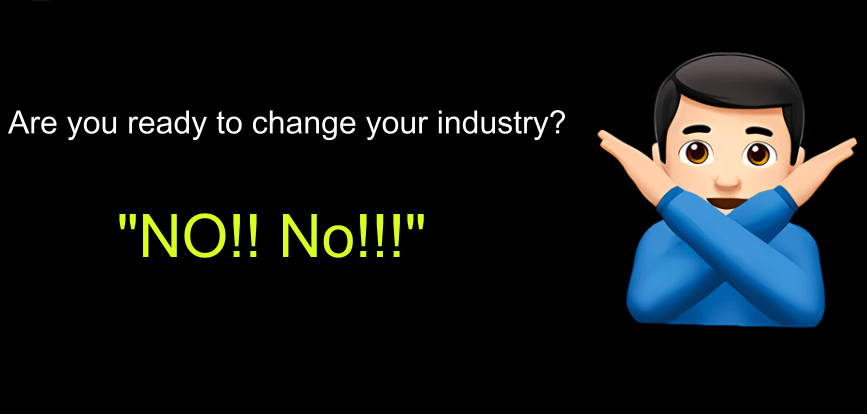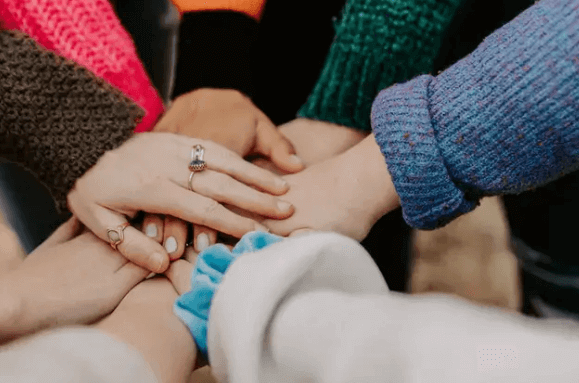Managing interpersonal relationships in the workplace is often a complex skill. Ideally, workplace relationships should be based on collaboration and mutual respect, falling somewhere between being “more than acquaintances, but less than friends.” In this article, the author shares personal experiences and discusses how to establish healthy and effective workplace relationships.
01
Last night, while scrolling through short videos, I came across a “workplace secret” clip with an explosive claim: there are only two choices for workplace growth—either get promoted or get out.
Hmm, sounds like there’s some truth to that. I kept watching: Promotion and career growth seem to have many paths, but ultimately, there’s only one—becoming the boss’s trusted confidant.
Upon reflection, this didn’t sit right with me.
My first instinct was to disagree. Looking back on my own career, I’ve never been anyone’s “confidant,” yet my career development hasn’t been bad.
My second thought was that this viewpoint was incredibly arrogant.
Is it really that easy to become someone’s confidant? Do you think you can just decide to become one?
Third, this author clearly doesn’t understand how today’s young people think. If you try to manipulate people in the workplace now with tactics like PUA (manipulative behavior), the “confidant” you seek will end up handing you a resignation letter.
So, if a healthy path to career growth isn’t like that, what is it?

02
I won’t beat around the bush. Here’s my insight in just eight words: More than acquaintances, but less than friends.
First, you need to be fairly familiar with your colleagues, both vertically (your superiors and subordinates) and horizontally (your peers and collaborators).
“Familiar” means two things: One, you’re well-acquainted with work processes and systems, so you can collaborate efficiently and get your job done.
Two, to collaborate more smoothly and even enjoyably, it helps to understand your key collaborators' preferences and dislikes. It’s also beneficial to share some common interests or topics outside of work, whether it’s celebrities, food, gaming, or gadgets.
Now, as for “less than friends,” this refers to boundaries and self-awareness.
If you can engage in non-work-related conversations, that’s great, but know when to stop. The primary goal is to work together happily and successfully to achieve good results.
Don’t expect to become close friends with everyone, nor should you dream of being the boss’s favorite or part of some exclusive inner circle with special support.
Hold on, before you argue with me—
Yes, workplace friendships and confidant relationships do exist. I’ve seen them and even experienced them firsthand.
But for most people, it’s neither feasible nor desirable.
03
Here’s the interesting part.
The more you don’t chase after something, the more it tends to come to you.
Maybe I’ve just been lucky.
Over the past decade and a half, in almost every company I’ve worked for, I’ve had leaders who greatly appreciated me—sometimes even high-level executives.
I’ve written before about a time when I was struggling financially after buying a house. I asked a former boss to lend me 50,000 yuan. He transferred 100,000 yuan to me without even asking when I’d repay it.
When I repaid him, he even asked, “Are you really back on your feet? Do you need another 100,000?”
In every company I’ve worked for, I’ve made friends who stayed close even after we left the company.
I even met my girlfriend—now my wife—at work.
But whether it's between a boss and an employee or between peers, the most important thing is the ability to work well together and achieve results.
At the end of the day, we all work to deliver good performance, earn a living, and support our families. We also want to work with people who are reliable and, ideally, a little fun, to make up for the monotony of the job.
So, as long as you are reliable at work and open and honest in life, you’ll naturally attract like-minded people.
That person could be your superior, or it could be your peer.
04
And that brings us back to the essence of this workplace insight: High-quality workplace relationships are built through reliable work and authentic self-presentation, creating mutual attraction.
At its core, it’s a “selection” process.
You filter out those who don’t match and attract those who do. It’s that simple.
This logic holds not only in the workplace but also in romantic relationships.
As a side note, there's an age-old question about relationships: Should you seek out someone with a similar personality or someone with a complementary one?
My answer is both can work, and both can fail.
Because the essence of any relationship is mutual attraction—you grow closer because you’re interested in the other person, and you’re willing to invest energy and resources into maintaining and developing the relationship.
When that’s the case, whether your personalities are similar or complementary, both dynamics can add flavor to the relationship—shared ideas create harmony, and differing ideas bring surprises.
That’s the key.
Now, look back at the “secret” shared by that workplace blogger at the beginning. It has nothing to do with attraction or selection. It’s based on a “building” logic.
The core of “building” is wanting—I want to achieve a particular goal; I want to form a relationship with someone; I want to become someone’s confidant.
05
I won’t dwell on the selfishness of this logic, as people will naturally prioritize their own interests when considering benefits.
The real problem with this logic is its arrogance.
Arrogance in thinking you can control others, and arrogance in thinking you can ignore your own inner voice.
The final result will backfire.
Who do you think you are? You can’t manufacture a “confidant” relationship.
Trying to be sneaky about it is like a student hiding behind a book in class, thinking the teacher can’t see them snacking, while the teacher, looking from above, sees everything clearly.
Conversely, if your work is reliable and your ideas align, you’ll naturally develop a close relationship with your superior, and others may see you as a “confidant.”
That kind of relationship feels great—it’s like you’re fighting alongside someone in the same trench!
I know this from personal experience.
But this type of collaboration is fundamentally different from the “master-servant” confidant relationship.
The criteria are simple: openness and transparency.
“Openness” means it’s not limited to a small circle—anyone who’s reliable and like-minded can form this healthy working relationship. It’s not restricted to just one or two people.
“Transparency” means no secret exchanges, no hidden benefits, and whatever is discussed behind closed doors can largely be shared openly. There’s nothing shady going on.
Work relationships where you are “more than acquaintances but less than friends” have many advantages. They create comfort and avoid conflicts of interest, protecting both parties.
And if you happen to gain a friendship along the way, that’s just a bonus.
06
On the topic of relationships, let me share a small realization.
Every morning, I walk my child to school before heading to work.
Yesterday, after getting ready, my kid flopped down on the sofa, unwilling to move.
I knew why: procrastination.
She had stayed up late the night before, taking her time with homework, finding excuses to drink water, go to the bathroom—anything to avoid finishing.
So, naturally, she was tired and reluctant to get up.
I didn’t say anything.
I took her hand and quietly walked her to school.
Her eyes were still sleepy, and she looked dazed.
I briefly considered lecturing her about the benefits of finishing homework earlier, so she could sleep earlier.
But then another thought occurred: she already knows this. If I bring it up now, wouldn’t it feel more like blame than advice?
She didn’t stay up late because she doesn’t understand the value of sleeping early. She just hasn’t developed the willpower yet.
So, I let the first thought slide.
As we passed a street corner under some tall trees, I said, “Can you hear the birds singing? They’re saying ‘hello, hello!’”
She gave me a blank stare.
She’s no longer the little girl who’d laugh at every joke I made.
But soon, I saw her skipping happily through the school gate.
Her mood had improved a bit.
Not bad.
Whether it’s a child or a colleague, we’re all independent individuals responsible for our own actions and feelings.
We all have our own boundaries.
We must recognize, respect, and even reinforce those boundaries.
Without them, we can’t form a complete, independent self.
Interpersonal relationships are like opening a gate in the wall of your boundaries, building a path that connects with others.
The “confidant” relationship mentioned earlier is not about opening gates but digging secret tunnels between two dark rooms, hoping to connect with someone else’s hidden space.
This type of relationship drains both energy and emotion.
It’s not worth it.
After 18 years of ups and downs in the workplace, if I had to summarize the ideal workplace relationship, it would be what the title suggests: More than acquaintances, but less than friends.
I’ve heard that Gen Z is starting to shake up workplace dynamics. This is a good thing.
I hope the next generation will create a healthier and more comfortable working environment for everyone.
Let’s focus more on effective collaboration and doing better work.
Goodbye.







